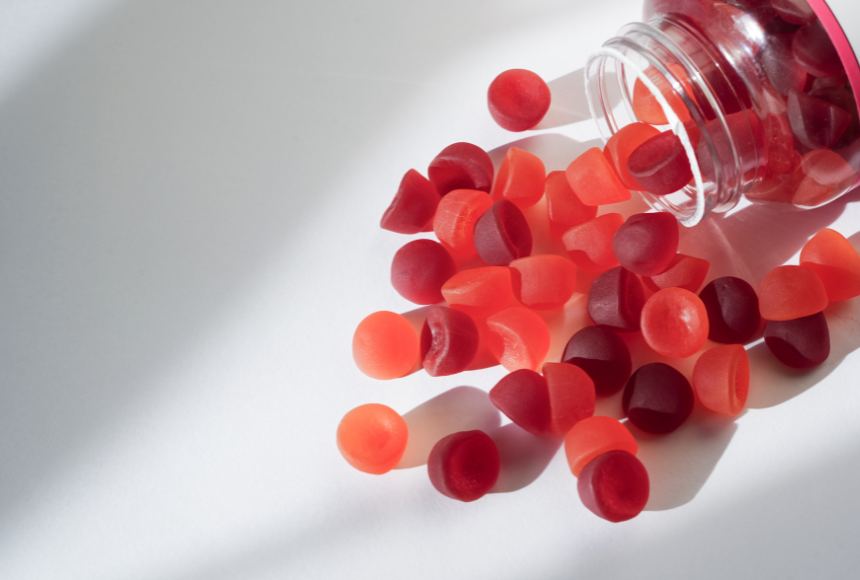5 Benefits of Probiotics for Healthy Kids
by: Kerry Jones, MPH, RDN, LDN - Nutrition Consultant for Tiny Sprouts Foods
Probiotics have grown in popularity in the last couple of years. In fact, the probiotic industry was estimated to be worth $48.38 billion in 2018 and is not anticipated to slow down any time soon1. This is due to the growing number of health benefits being discovered on probiotic use for the whole family.
Probiotics are live microorganisms that are intended to have health benefits when consumed in fermented foods, such as yogurt, kefir, and sauerkraut, probiotic-fortified foods, or some dietary supplements. The microorganisms present in probiotics are often similar to the ones that naturally live in our bodies 2. While we typically think of bacteria or microorganisms as a bad thing, our bodies actually need certain types of microorganisms and good bacteria to stay healthy.
Shop Tiny Sprouts Superseed Boosters with Vitamin D & Probiotics today!
About the author:

Kerry Jones, MPH, RDN, LDN is a pediatric & maternal registered dietitian, nutrition consultant for Tiny Sprouts Foods, and owner of Milestones Pediatric & Maternal Nutrition. Her goal is to help transition women into motherhood and then continue to support them and their children as they grow. Learn more about nutrition for your family at www.milestonesnutrition.com.
Disclaimer: The information contained in this blog is based on the experience of the author and science-based research. It is not intended to replace medical advice or diagnosis from a physician or other medical provider. This blog is not intended as a substitute for a consultation with a physician or other healthcare provider. The author is not responsible for any adverse effects or consequences resulting from the use of any suggestions discussed in this blog. It is important to talk to your doctor or your child’s pediatrician prior to starting any new medications or supplements.
Sources:
- Probiotics Market Sizes, Share & Trends Analysis Report By Products (Food & Beverages, Dietary Supplements), By Ingredients (Bacteria, Yeast), By End Use, By Distribution Channel, And Segment Forecasts, 2019-2025. San Francisco, CA: Grand View Research; 2019.
- Probiotics: What You Need To Know. National Institutes of Health: National Center for Complementary and Integrative Health. https://www.nccih.nih.gov/health/probiotics-what-you-need-to-know. Updated August 2019
- Armstrong C. AAP Reports on Use of Probiotics and Prebiotics in Children. Am FamPhysician. 2011; 83(7): 849-52.
- Valdes AM, Walter J, Segal E, Spector TD. Role of the gut microbiota in nutrition and health. BMJ. 2018; 316: k2179.
- Morowitz MJ, Carlisle E, Alverdy JC. Contributions of intestinal bacteria to nutrition and metabolism in the critically ill. Surg Clinc North Am. 2011; 91(4): 771-85.
- Hojak I. Probiotics in children: what is the evidence? Pediatr Gastroenterol Hepatol Nutr. 2017; 20(3): 139-46.
- Gaurner F, Sanders ME, Eliakim R et al. Probiotics and prebiotics. World Gastroenterology Organisation Global Guidelines. 2017.
- NASPGHAN Nutrition Report Committee, Michail S, Sylvester F, Fuchs G, Issenman R. Clinical efficacy of probiotics: review of the evidenced with focus on children. J Pediatr Gastroenterol Nutr. 2006; 43(4): 550-7.
- Hempel S, Newberry SJ, Maher AR et al. Probiotics for the prevention and treatment of antibiotic-associated diarrhea: a systematic review and meta-analysis. JAMA. 2012;307(8): 1959-69.
- Sazawal S, Hiremath G, Dhingra U, Malik P, Deb S, Black RE. Efficacy of probiotics in prevention of acute diarrhea: a meta-analysis of masked, randomised, placebo-controlled trials. Lancet Infect Dis. 2006; 6(6): 374-82.
- Guo Q, Goldenberg JZ, Humphrey C,El Dib R, Johnston BC, Cochrane IBD Group. Probiotics for the prevention of pediatric antibiotic-associated diarrhea. Cochrane Database Syst Rev. 2019; 2019(4): CD004827.
- Allen SJ, Martinez EG, Gregorio GV, Dans LF, Cochrane Infectious Diseases Group. Probiotics for treating acute infectious diarrhea. Cochrane Database Syst Rev. 2010;2010(11): CD003048.
- Huang R, Hu J. Positive effect of probiotics on constipation in children: a systematic review and meta-analysis of six randomized controlled trials. Front Cell Infect Microbiol. 2017; 7: 153.
- Cuello-Garcia CA, Brożek JL, Fiocchi A et al. Probiotics for the prevention of allergy: asystematic review and meta-analysis of randomized controlled trials. J Allergy Clin Immunol. 2015; 136(4): 952-61.
- Rautava S, Kainonen E, Salminen S, Isolauri E. Maternal probiotic supplementation during pregnancy and breast-feeding reduces the risk of eczema in the infant. J Allergy Clin Immunol. 2012; 130(6): 1355-60.
- Isolauri E, Arvola T, Sütas Y, Moilanen E, Salminen S. Probiotics in the management of atopic eczema. Clin Exp Allergy. 2000; 30(11): 1604-10.
- Reid G, Jass J, Sebulsky MT, McCormick JK. Potential uses of probiotics in clinical practice. Clin Microbiol Rev. 2003; 16(4): 658-72.
- Wang Y, Li X, Ge T et al. Probiotics for prevention and treatment of respiratory tract infections in children: a systematic review and meta-analysis of randomized controlled trials. Medicine (Baltimore). 2016; 95(31): e4509.
- Hatakka K, Savilahti E, Pönkä A et al. Effect of long term consumption of probiotic milk on infections in children attending day care centres: double blind, randomised trial.BMJ. 322(7298): 1327.
- Sandoval F, Faleiros S, Cabello R, Díaz-Dosque M, Rodríguez G, Escobar A. The consumption of milk supplemented with probiotics decreases the occurrence of caries and the salivary concentration of hD-3 in children. Clin Oral Investig. 2021.
- Abdel-Gadir A, Stephen-Victor E, Gerber GK et al. Microbiota therapy acts via a regulatory T cell MyD88/RORt pathway to suppress food allergy. Nature Medicine. 2019; 25: 1164-74.
- Tan-Lim CSC, Esteban-Ipac NAR. Probiotics as treatment for food allergies among pediatric patients: a meta-analysis. World Allergy Organ J. 2018; 11(25).
- Wang HT, Anvari S, Anagnostou K. The role of probiotics in preventing allergic disease.Children (Basel). 2019; 6(2): 24.
- Baron M. A patented strain of Bacillus coagulans increased immune response to viral challenge. Postgrad Med. 2009; 121(2): 114-8.




